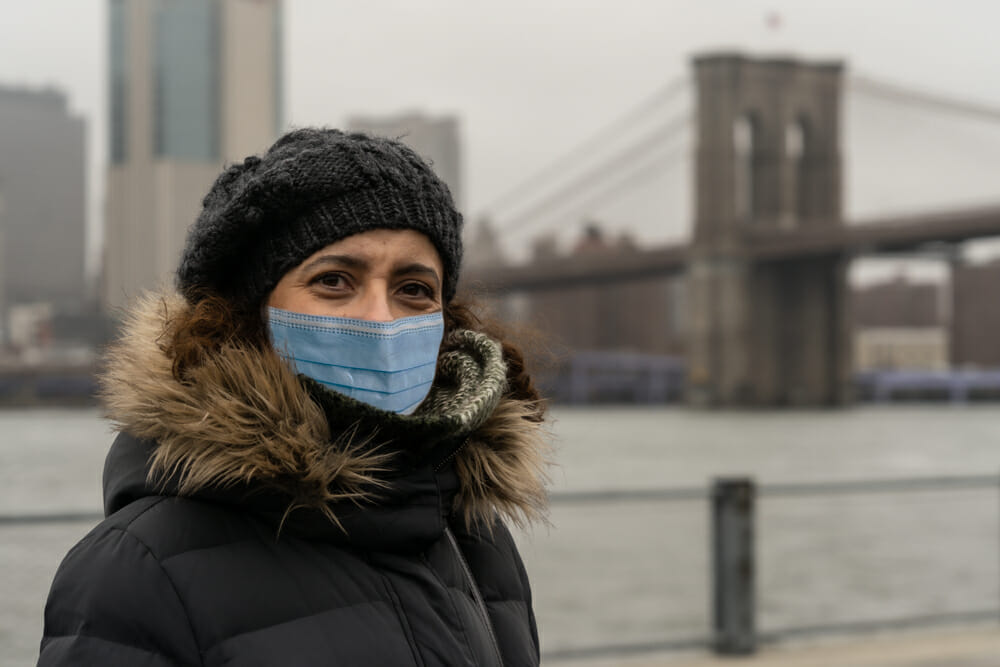 {Read in 10 minutes} Welcome to late March 2020. There are so many things in the world right now that people are freaking out about. Take a deep breath — your estate plan should not be one of them.
{Read in 10 minutes} Welcome to late March 2020. There are so many things in the world right now that people are freaking out about. Take a deep breath — your estate plan should not be one of them.
If you feel compelled to sign anything right now, the best document you can sign is a Health Care Proxy. You do NOT need an attorney to execute a Health Care Proxy; the forms are available for free as downloadable and fill-in-the blank PDFs on the New York State Department of Health website. Fill it out and keep paper and electronic copies.
I’m a Trusts & Estates attorney — how could I possibly say that people shouldn’t be freaking out about their estate planning? Three simple points: (1) if you have a Will that is many years old, it may still adequately accomplish your planning goals; (2) if you don’t have a Will, the laws of intestacy may still accomplish your wishes; and (3) regardless of whether you have a Will, you may have already designated beneficiaries on many or all of your assets that accomplish your goals.
As the present public health emergency has more and more people isolating in their homes — either voluntarily or pursuant to government orders — creating new documents from scratch now might be exceedingly difficult, unless you happen to live with other people who all happen to be notaries and are willing to witness documents (and are not mentioned in your planning documents as beneficiaries or agents).
This is going to be a longer blog entry than I usually write because I want to get information out to anyone who is panicking. Although I may fail, I will still try to be brief; I know everyone — myself included — is on COVID-19 information overload. Wherever possible, I provide links to other blog articles I’ve written for those who want more detail, but I can also hit all the basics right now. Here are the essentials:
If you already have a Will, take a good look at it. I don’t care how old the document is. Maybe it is five years old, or maybe it is 50. Doesn’t matter right now. I don’t care if your Will is two pages long or two hundred. Skip right to the important parts. These are the two essentials:
– Who are the beneficiaries (primary and alternate)?
– Who are the Executors (primary and alternate)?
That’s what’s pressing for most people. Of course, there may be other considerations such as estate tax planning for people who have wealth that exceed the estate tax threshold, people who want to ensure continuing trusts for the benefit of certain beneficiaries, or other individual concerns — you can address those after this public health emergency ends and you can work with your attorney to thoroughly discuss these issues and put the time and focus that they deserve into them. Again, for now, let’s just focus on the two basics here:
Beneficiaries. Who are the beneficiaries? Do you still want them to be your beneficiaries? If so, mission accomplished.
Don’t worry if you wrote your Will when your kid was five and now she’s 40 – even if the Will says that everything is held in trust for her benefit until she is 25 or 35 — that provision is no longer applicable, and she will inherit outright. No need to update.
Does your Will leave money to a former spouse? No problem. The law automatically revokes those bequests under most circumstances.
Your Will only names one kid and you had two more after writing it? No problem. The law cuts your other kids in, under most circumstances.
Bonus points: Does your Will name alternate beneficiaries? Such as “I leave everything to X, but if they predecease me, I leave everything to Y?” You got all your bases covered! If not, follow up with an attorney when the storm quells and tie up these loose ends.
Executors. Please make sure that your Will names an Executor and that they are eligible to serve: at least 18 years of age, has mental capacity, no felony convictions, and is either a US citizen or a permanent resident. That’s all that’s required.
Bonus points: Did you name an alternate Executor who also fits these requirements? That’s excellent. Also it’s great if your Will is old and your Executor died years ago — your alternate can step in. If there is no alternate, the Surrogate’s Court can appoint someone to serve in that role — most likely the beneficiary with the largest stake under your Will.
As a final note under the hearing of your Will, look at the document you are holding and make sure that it is the original Will. It is essential that your Executor have your original Will to offer for probate in the Surrogate’s Court or satisfactorily explain its absence (which is often impossible to do, if you are deceased and cannot testify as to this fact).
If you do not have the original Will, figure out where it is. Maybe the attorney who wrote it kept it. Maybe you kept it and lost the original but retained a photocopy. If you are not absolutely certain where it is but you are sure that you didn’t revoke it by either (1) executing a new Will or (2) burning, tearing, cutting, cancelling, obliterating or otherwise mutilating or destroying it, please do the following:
– 1.Take out a piece of paper and write today’s date on it.
– 2. Write “I signed a Will on [date] and I once had the original thereof. I attach a photocopy of it to this piece of paper. I lost the original. However, I want to make it clear that I did not revoke it by an act of burning, tearing, cutting, cancellation, obliteration or other mutilation or destruction, nor did I ever instruct anyone to do that on my behalf.”
– 3. Sign it. If you have access to a notary or a witness, that’s great. If not, don’t worry. Just your solo statement may be enough. If you only have it as a PDF, make the statement by e-mail and attach it. Send a copy to yourself and to your Executor.
– 4. If you want bonus points, make a video of yourself after you sign it with your smartphone. Read the statement aloud and flash the photocopy of your Will for the camera. Point to your signature and tell the camera that you just signed the document and state the date out loud. Then email the video to yourself and your Executor.
By the way, if you’d like a laugh — and frankly, who couldn’t use a laugh right now — I am not being dramatic about that “burning, tearing, cutting, cancellation, obliteration, or other mutilation or destruction” language — our statutes in New York actually contain this language. For real.
By the way, if anyone figures out how to obliterate a paper writing, please contact me using the link below but do not use your original Will as an example!
If you don’t have a Will, guess what? — you may already have an estate plan. It’s called intestacy. Every state has an intestacy statute that governs who inherits your assets when you don’t have a Will. And while it’s rather difficult to compile accurate statistics on this point, I would not be stunned to learn that the vast majority of New Yorkers do not have Wills. What intestacy laws attempt to accomplish is putting a plan into place that fits a default pattern of what the majority of that state’s residents would want.
What does this look like? Well…
– If I am married and I have no kids, my spouse gets everything unless we have a prenuptial agreement.
– Kids and no spouse? Kids get everything in equal shares. If they are minors, the Court will protect and preserve the money until they are 18.
– Spouse and kids? Half to the spouse and half to the kids — but heed the language below about assets that may pass automatically to named beneficiaries, avoiding both your Will and intestacy laws.
– No spouse and no kids? All to your surviving parent or parents.
– No spouse, no kids, and no living parent? Your siblings or your nieces and nephews.
None of these people? So long as you have grandparents, aunts, uncles, first cousins, or first cousins once removed (the children of your first cousins), New York’s laws will find some relative to inherit your assets.
I realize that this may not be ideal and these people may not be your first choice, but at this point, your choices are limited. You can do a D-I-Y Will — either using an online program or writing it out longhand if you don’t have a printer while self-isolating at home, but it may be difficult to find the witnesses you will need to execute it — and be sure to follow the rule to make sure you sign it properly. My suggestion: make an appointment with an attorney after the present public health crisis to get a Will in place. And read the section below about beneficiary designations and see if you can do some triage to better the situation.
You may already have assets that name beneficiaries — ie, you may have done some estate planning without being aware of it.
– Do you have some life insurance — either that you purchased or as part of your employment?
– What about a retirement account, whether it be one to which you actively contribute or one you rolled over from prior employment?
Assets like these tend to be set up with beneficiary designation forms that you receive when setting them up. Did you fill it out? Guess what? That beneficiary designation form dictates who receives the asset regardless of whether you have a Will or not (and who are the beneficiaries of the Will if you have one).
If you can’t find the form or don’t remember, see if you can call the company that administers it. Sure, you may be isolating at home, but many companies have their employees working from their homes, responding to emails and telephone calls while they are isolating. Many companies also have these beneficiary designation forms online to download and you can submit them electronically or deposit them in the mail. You may be able to do quite a lot without ever leaving home.
I hope that by writing this long blog entry I have given at least one person some peace or reduced their anxiety in some way. If I have, it’s worth it. We all need to focus on what’s really important right now: our physical and mental health, and that of our family and close friends. Be well and stay sane.
For more information on this topic, please contact me.

